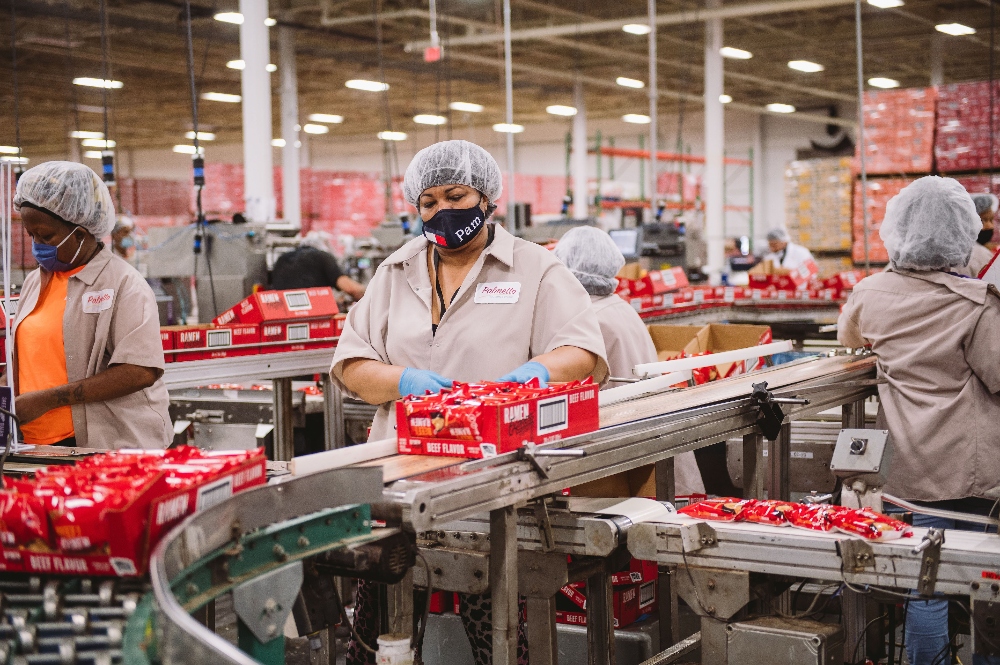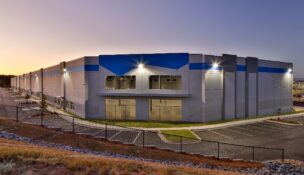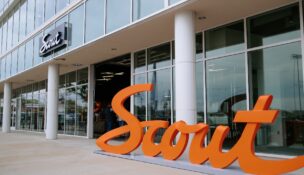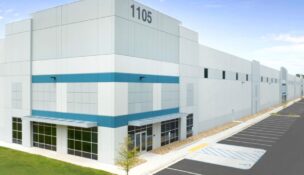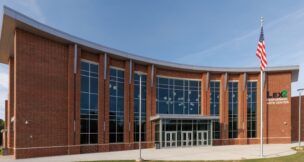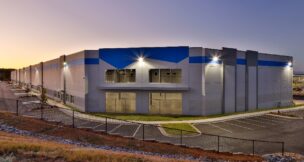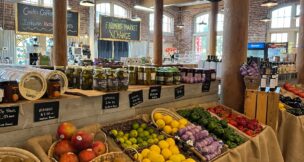How tiny Saluda became a ramen noodle manufacturing giant
Christina Lee Knauss //September 7, 2023//
How tiny Saluda became a ramen noodle manufacturing giant
Christina Lee Knauss //September 7, 2023//
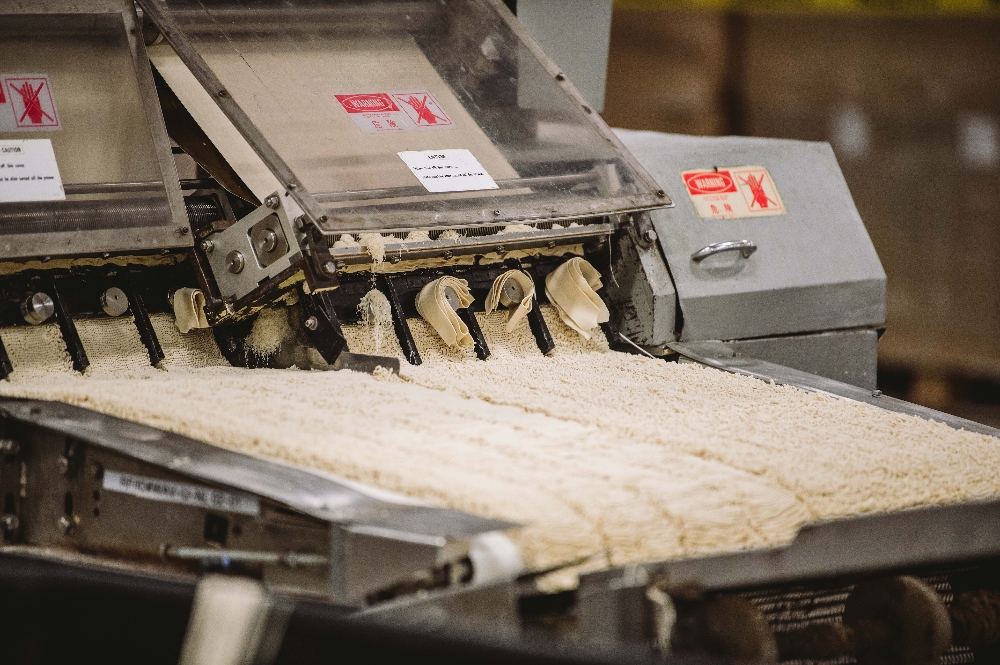
Most people who live in South Carolina probably don’t realize that a plant located in the small Midlands town of Saluda (population 3,122) produces millions of servings a year of one of the world’s most popular easy-to-fix meals – ramen noodles.
From U.S. 378, which runs right in front of it, the building that houses Palmetto Gourmet Foods Inc. looks like just another manufacturing facility. But what goes on inside is a new way of producing and thinking about the future of the quick-serve noodles, which are one of the most popular food items in the world. Experts estimate that about 100 billion servings of ramen are consumed annually worldwide.
Palmetto Gourmet Foods currently produces the Ramen Express and Chef Woo product lines, which are available in more than 15,000 retailers nationwide including Walmart and Costco. The noodles are also available across Canada.
The company’s mission is much more than just producing noodles, however, according to Palmetto Gourmet Foods co-founder and CEO Reza Soltanzadeh. One of his and his company’s — biggest goals is to find a way to feed as many people around the world as possible by fighting the growing issue of food insecurity.
He is trained as a doctor but entered the business world shortly after completing medical school, looking to find a way to pair his concern for human health with a desire to develop products that could help people at all income levels live healthier lives.
In his quest to make healthy foods more available to people worldwide, Soltanzadeh in 2019 first founded food tech innovation company Borealis Foods, which is based in Toronto. Palmetto Gourmet Foods is a subsidiary of Borealis.
“The mission of the company is to produce healthy food that is truly affordable and also sustainable,” Soltanzadeh told SC Biz News. “When we say healthy, we mean food that is high quality and also contains a good amount of protein. For many people around the world, finding access to that type of food at an affordable price is a huge challenge. My thought was, can we get a meal with about 20 grams of protein that would be less than $2 retail at Wal-Mart? Our food scientists initially were shocked and said that was impossible.
How Saluda became a ramen noodle hotspot
In the quest to deliver protein-rich meals to the masses, Soltanzadeh worked consistently with scientists and in 2019 developed technology to make high-protein dough. The next question: what to make?
“We could potentially have done pasta, pizza dough or anything else, but we decided to produce ramen meals because ramen is popular around the planet,” he said. “People in all corners of the world and all cultures consume ramen but it’s inexpensive and easy. Add water and boom, you have a meal. We also liked the idea because ramen is so popular with young people.”
The next question: where to make this high-protein ramen?
“People were telling us to go and set up a factory and co-pack our ramen somewhere,” he said. “We went to China, Korea, and Vietnam and saw many factories, but we didn’t feel good about producing our food outside the United States.”
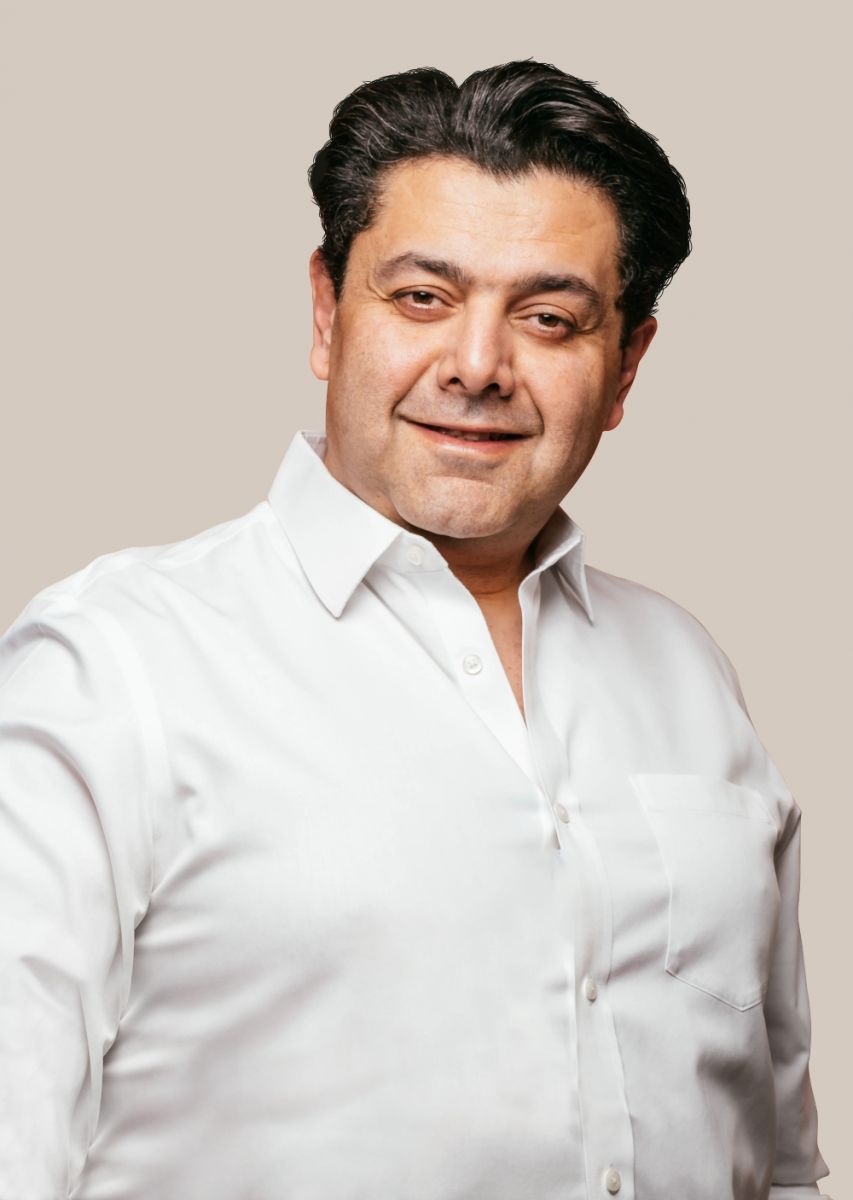 Then he heard about a plant in Saluda, South Carolina. Originally a textile factory, the facility was re-purposed as a food production plant and was co-packing ramen noodles for Wal-Mart under the Great Value store label when Soltanzadeh and his partners came calling in 2019. They purchased the plant and launched Palmetto Gourmet Foods.
Then he heard about a plant in Saluda, South Carolina. Originally a textile factory, the facility was re-purposed as a food production plant and was co-packing ramen noodles for Wal-Mart under the Great Value store label when Soltanzadeh and his partners came calling in 2019. They purchased the plant and launched Palmetto Gourmet Foods.
“We could have chosen to be anywhere in the U.S. but we chose Saluda because of where it is,” he said. “We can stay connected through the Charleston port which is fabulous. The amount of sun allows us to plan for future solar use, and there is a large pool of workers coming out of this area, Columbia, Charleston and the Upstate.”
Palmetto Gourmet Foods currently produces two varieties of ramen. Chef Woo, its first brand, was developed to meet that goal of delivering high protein at an affordable price. It is the world’s first plant-based ramen noodle, featuring 20 grams of complete protein per serving. The company’s other popular brand is Ramen Express, which features noodles in a flat cake variety rather than the instant cup style of Chef Woo.
Making ramen noodles isn’t complicated, but it requires machinery that can accommodate a great deal of product in a short amount of time. Soltanzadeh invested in advanced ramen production lines from Taiwan for use at the Saluda plant.
At Palmetto Gourmet Foods, the dough Is mixed and then fed through a series of machines that slice it into thinner and thinner segments that form the noodles. The noodles are then steamed and sent through a fryer, then excess oil is removed from them and they dry as they move down the line. Noodle cups have round ramen cakes dropped into them, while flat ramen cakes have seasoning sachets placed on top and are sealed in plastic pouches. The products are divided into lines, packed into trays and cases, then vacuum sealed.
There are separate production lines for Chef Woo, which comes in a cup, and Ramen Express, which features noodles pressed and packaged into square cakes that are wrapped in paper.
Pulling together through two crises
Handling a ramen noodle startup already came with plenty of its own challenges, but only a few months after taking over the Saluda plant in October 2019, Soltanzadeh and others at the Saluda plant were hit with the supply chain nightmares and worker shortages caused by COVID-19.
When the pandemic started to ease, the war in Ukraine which started in early 2022 hit, causing prices of oil and flour to skyrocket and causing more supply chain issues.
“Through both crises, everybody pulled together and we got together to make it happen,” Soltanzadeh said.
Despite the challenges, Palmetto Gourmet Foods has experienced constant growth since its launch. The plant currently has 300 employees in the 220,000-square-foot plant, and officials expect to hire another 700 workers by 2028.
The high-tech production lines introduced to the plant in early 2022 are now capable of producing 1800 meals a minute, which works out to about 600 million meals a year. Eventually, the goal is to produce more than 1 billion meals annually, Soltanzadeh said.
Earlier in 2023, the company announced it planned to invest $100 million over the next five years to build up new facilities in Saluda and create a new solar power infrastructure that will eventually enable the plant to be powered totally by solar energy.
The investment will fund construction of a dedicated gluten-free ramen facility to enable the launch of new gluten-free ramen meals and high-protein snacks.
Giving back to the community
Employees at Palmetto Gourmet work in 12-hour shifts making sure the noodles get out to a growing assortment of customers, including many schools nationwide which recently signed up to offer the company’s products after Soltanzadeh and other company officials manned a popular booth at a recent national convention of school nutritionists.
“There were people lining up to try what we had to offer,” he said. “It was truly humbling to see the response, especially when we were there next to much larger companies.”
The company has also made an effort to give back to the community that helped it grow from its beginnings in 2019. Recently, Palmetto Gourmet for the second time donated 100,000 of its Ramen Express “Magic Noodles” meals to schools in Saluda County. “Magic Noodles” was developed by the company in a collaboration with WalMart to help introduce children to ramen.
A famous name is also now connected with Palmetto’s mission to stamp out food insecurity. In June, world-famous chef and businessman Gordon Ramsay signed on as an adviser and strategic partner with Borealis Foods to help advance the goal of providing affordable meals worldwide.
Soltanzadeh smiles and his eyes gleam when he talks about the possibility of solving hunger problems both locally and around the world with something as simple and recognizable as ramen noodles, made in a small town like Saluda.
“There are a lot of people involved in this company who have put their soul, blood and sweat into what we’re trying to do — it’s been an amazing journey,” he said. “We really want to be able to use the technology we have here to have an impact on as many human lives a possible, to keep as many people as possible from going hungry.”
